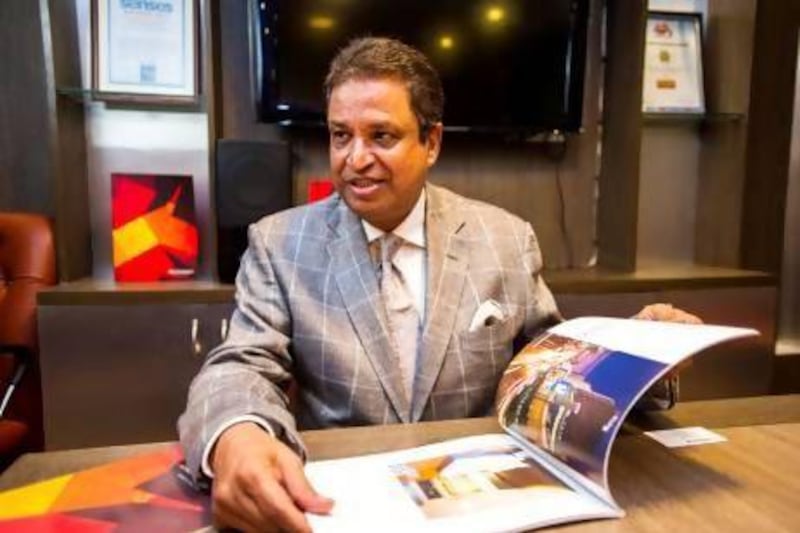NEW DELHI // When I finally ate Wai Wai, I ate it raw, like the cool kids.
In 1980s India where there were few imports coming into the country's closed economy, anything foreign had instant allure. Wai Wai instant noodles, from Nepal, were no different. It was on par with a smuggled bottle of Coca-Cola, which was banned in India between 1977 and 1993.
I watched for years as the seniors in boarding school practised their after-school ritual. Wai Wai is an instant noodle soup, but the noodles can be eaten raw. The older, and cooler, kids would crunch the noodles in the packet into tiny pieces, then mix in the sachets of flavouring: an onion-flavoured oil, chilli powder, and garlic-flavoured dried vegetables. Shake the packet and you have an instant snack.
I would watch this and then reluctantly munch on my dried fruit and nuts from the tuck shop. There was no way you could trade a pack of nuts and dried apricots for anything cool.
Wai Wai was banned in my house. My mother, a believer in eating food that was fresh and healthy, did not allow me the joy of discovering what it meant to eat a pack either raw or cooked.
I ate my first packet of raw Wai Wai as a teenager. I snuck out of the house and ate it in secret. It was so good. I went out "to a friend's house" more and more often.
My mother, perhaps realising that her attempts at prohibition were futile, finally allowed a pack into the house. I almost ate it right there but she insisted it be turned into a soup. This was nothing short of sacrilege. There is no argument you can lose as quickly as trying to convince your parents to do things differently like the cool kids.
So I was more than a little starstruck when I met Binod Kumar Chaudhary, the man who invented Wai Wai. At least two generations of Indians had grown to adore, if not worship his noodles. Some people aspire to meet their favourite rock star or movie hero. A revered author, perhaps. In my case, this chance interview with the Noodle King, as Mr Chaudhury is known, was nothing short of that.
When I told a friend and fellow Wai Wai lover that I was going to interview Mr Chaudhary, she asked me to thank him. "He fed me through university," she said.
Wai Wai's creation was an afterthought. Mr Chaudhary was looking to do something with the excess flour produced in the 1980s by his mills in the 1980s, which were churning out wheat for biscuits that were made by the Chaudhary family to sell at Nepal's only departmental store then, called the Arun Emporium.
He based Wai Wai on instant noodles from Thailand, a popular tourist destination for Nepalis at that time, and they made him Nepal's first billionaire.
The name Wai Wai means "Fast Fast" in Thai. But the flavourings for Wai Wai noodles were created to mimic the flavour profiles of Nepali cuisine.
There are now 50 different varieties of Wai Wai, but I was astounded to learn that Mr Chaudhary, being vegetarian, had only tasted one of them.
Mr Chaudhary's son, Rahul, has no such dietary restrictions. The only non-vegetarian in the family, Rahul grew up, like me, eating Wai Wai both raw and as a soup.
As a boarding school kid, Rahul introduced his friends to Wai Wai. They quickly became as obsessed as I had, choosing Wai Wai over a healthy diet.
Every day, a small amount of hot water was available in the dormitories for half an hour for a bath. Rahul and his friends spent 10 minutes of that time using some of that hot water to cook a pack of noodle soup. But mostly, like the rest of us, they ate it raw.
Noodle penetration remains low in India, and Wai Wai is not very well known outside of north and north-eastern India.
Mr Chaudhary keeps a close eye on instant noodle consumption around the world. Japan and South Korea are among the highest consumers, devouring 70 packs per person per year. Thailand's consumption stands at 50 packs per person. In Nepal, thanks to Wai Wai, the consumption is 30 packets per capita, whereas India's is only four. Mr Chaudhary hopes to increase this to 20 packs per person. This will no doubt add to more parents fretting about their children's dietary balance.
But all he needs to do is seed the schools with it. Those fruit-and-nut kids will never look back.
sbhattacharya@thenational.ae
twitter: For breaking news from the Gulf, the Middle East and around the globe follow The National World. Follow us





